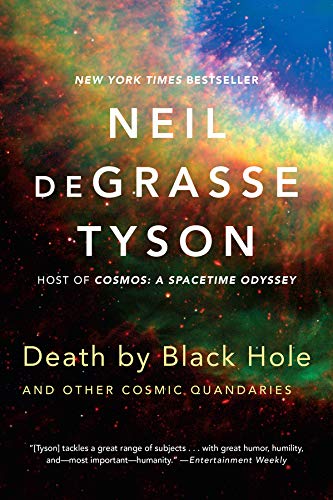
|
|
Product Description
For millennia humans have studied the skies to help them grow crops, navigate the seas, and earn favor from their gods. We still look to the stars today for answers to fundamental questions: How did the universe begin? Will it end, and if so, how? What is our place within it? John North has been examining such questions for decades. In Cosmos, he offers a sweeping historical survey of the two sciences that help define our place in the universe: astronomy and cosmology.
           Organizing his history chronologically, North begins by examining Paleolithic cave drawings that clearly chart the phases of the moon. He then investigates scientific practices in the early civilizations of Egypt, Greece, China, and the Americas (among others), whose inhabitants developed sophisticated methods to record the movements of the planets and stars. Trade routes and religious movements, North notes, brought these ancient styles of scientific thinking to the attention of later astronomers, whose own theories—such as Copernicus’ planetary theory—led to the Scientific Revolution.
           The work of master astronomers, including Ptolemy, Galileo, Kepler, and Newton, is described in detail, as are modern-day developments in astrophysics, such as the advent of radio astronomy, the brilliant innovations of Einstein, and the many recent discoveries brought about with the help of the Hubble telescope. This new edition brings North’s seminal book right up to the present day, as North takes a closer look at last year’s reclassification of Pluto as a “dwarf†planet and gives a thorough overview of current research.
           With more than two hundred illustrations and a comprehensive bibliography, Cosmos is the definitive history of astronomy and cosmology. It is sure to find an eager audience among historians of science and astronomers alike.
           Organizing his history chronologically, North begins by examining Paleolithic cave drawings that clearly chart the phases of the moon. He then investigates scientific practices in the early civilizations of Egypt, Greece, China, and the Americas (among others), whose inhabitants developed sophisticated methods to record the movements of the planets and stars. Trade routes and religious movements, North notes, brought these ancient styles of scientific thinking to the attention of later astronomers, whose own theories—such as Copernicus’ planetary theory—led to the Scientific Revolution.
           The work of master astronomers, including Ptolemy, Galileo, Kepler, and Newton, is described in detail, as are modern-day developments in astrophysics, such as the advent of radio astronomy, the brilliant innovations of Einstein, and the many recent discoveries brought about with the help of the Hubble telescope. This new edition brings North’s seminal book right up to the present day, as North takes a closer look at last year’s reclassification of Pluto as a “dwarf†planet and gives a thorough overview of current research.
           With more than two hundred illustrations and a comprehensive bibliography, Cosmos is the definitive history of astronomy and cosmology. It is sure to find an eager audience among historians of science and astronomers alike.
Customers Who Bought This Item Also Bought
- Camb Concise History of Astronomy
- The Mathematics of the Heavens and the Earth: The Early History of Trigonometry
- The Universe An Illustrated History of Astronomy (Ponderables)
- Greek Astronomy (Dover Books on Astronomy)
- A History of Astronomy from Thales to Kepler (Dover Books on Astronomy)
- A History of Astronomy (Dover Books on Astronomy)
- The Cambridge Illustrated History of Astronomy (Cambridge Illustrated Histories)
- The Copernican Revolution: Planetary Astronomy in the Development of Western Thought
- To Measure the Sky: An Introduction to Observational Astronomy
- A Student's Guide to the Mathematics of Astronomy (Student's Guides)
*If this is not the "Cosmos: An Illustrated History of Astronomy and Cosmology" product you were looking for, you can check the other results by clicking this link







